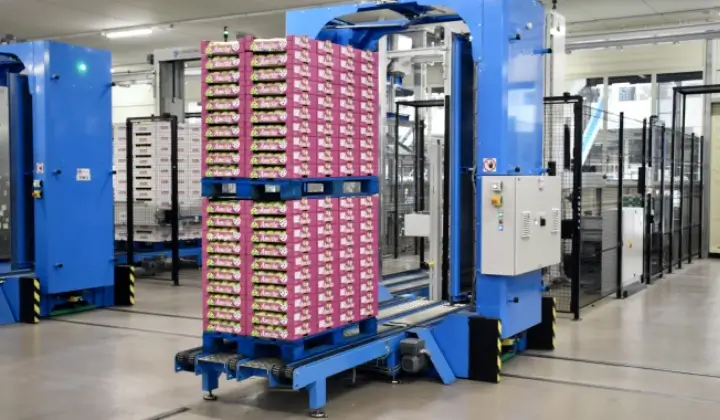




For Airlines: Monitor seat availability, adjust fares dynamically, and predict delays based on weather and traffic data.
For Hotels: Track room occupancy, optimize pricing, and offer personalized promotions to customers.
For Travel Agencies: Identify customer preferences and adjust itineraries in real time.




Demand Fluctuations: Analyzing booking patterns during peak travel seasons or events.
External Conditions: Adjusting prices in response to weather, competitor actions, or market disruptions.
Traveler Behavior: Factoring in customer preferences, such as loyalty programs or last-minute bookings.



Proactive Support: Analyze real-time customer interactions to address potential issues before they escalate. For example, notifying a traveler of a delayed flight and offering an alternative itinerary in advance.
Personalized Recommendations: Suggest options based on customer behavior, such as showing boutique hotels to a traveler who has previously searched for unique accommodations.
Integrated Experiences: Use data from different stages of the journey to provide cohesive services, such as syncing hotel check-in times with flight arrival schedules.







1. Data Integration: Travel businesses often rely on multiple systems that don’t communicate effectively. A tailored approach can unify these platforms, creating a seamless flow of information.
2. Scalability: Generic solutions may struggle to handle growing data volumes or evolving business needs. Customized solutions are designed with scalability in mind.
3. Privacy and Compliance: Adhering to data protection regulations like GDPR requires careful planning. Tailored systems can incorporate compliance measures from the ground up.
4. Workforce Adaptation: Employees must be trained to interpret and act on insights generated by real-time analytics. Customized systems can simplify workflows, making them more intuitive for users.
Optimizing Resources: Tailored analytics platforms can help airlines reduce fuel consumption by suggesting optimal flight paths in real time.
Reducing Over-Tourism: Customized systems can analyze visitor patterns and promote alternative destinations during peak seasons, preserving popular locations.
Promoting Green Choices: Platforms that use real-time data to highlight eco-friendly options, such as carbon-offset flights or sustainable hotels, cater to the growing segment of eco-conscious travelers.
1. AI-Powered Predictions: Predictive analytics, tailored to individual business models, will enhance demand forecasting and customer segmentation.
2. IoT Integration: Smart devices and sensors will provide real-time updates on everything from flight delays to hotel energy consumption.
3. Blockchain for Transparency: Customized blockchain systems can improve transaction transparency and data security for travelers.


| Cookie | Duration | Description |
|---|---|---|
| __cf_bm | 1 hour | This cookie, set by Cloudflare, is used to support Cloudflare Bot Management. |
| _cfuvid | session | Calendly sets this cookie to track users across sessions to optimize user experience by maintaining session consistency and providing personalized services |
| cookielawinfo-checkbox-advertisement | 1 year | Set by the GDPR Cookie Consent plugin, this cookie records the user consent for the cookies in the "Advertisement" category. |
| cookielawinfo-checkbox-analytics | 11 months | This cookie is set by GDPR Cookie Consent plugin. The cookie is used to store the user consent for the cookies in the category "Analytics". |
| cookielawinfo-checkbox-functional | 11 months | The cookie is set by GDPR cookie consent to record the user consent for the cookies in the category "Functional". |
| cookielawinfo-checkbox-necessary | 11 months | This cookie is set by GDPR Cookie Consent plugin. The cookies is used to store the user consent for the cookies in the category "Necessary". |
| cookielawinfo-checkbox-others | 11 months | This cookie is set by GDPR Cookie Consent plugin. The cookie is used to store the user consent for the cookies in the category "Other. |
| cookielawinfo-checkbox-performance | 11 months | This cookie is set by GDPR Cookie Consent plugin. The cookie is used to store the user consent for the cookies in the category "Performance". |
| CookieLawInfoConsent | 1 year | CookieYes sets this cookie to record the default button state of the corresponding category and the status of CCPA. It works only in coordination with the primary cookie. |
| viewed_cookie_policy | 11 months | The cookie is set by the GDPR Cookie Consent plugin and is used to store whether or not user has consented to the use of cookies. It does not store any personal data. |
| wpEmojiSettingsSupports | session | WordPress sets this cookie when a user interacts with emojis on a WordPress site. It helps determine if the user's browser can display emojis properly. |
| Cookie | Duration | Description |
|---|---|---|
| li_gc | 6 months | Linkedin set this cookie for storing visitor's consent regarding using cookies for non-essential purposes. |
| lidc | 1 day | LinkedIn sets the lidc cookie to facilitate data center selection. |
| wp-wpml_current_language | session | WordPress multilingual plugin sets this cookie to store the current language/language settings. |
| yt-remote-cast-installed | session | The yt-remote-cast-installed cookie is used to store the user's video player preferences using embedded YouTube video. |
| yt-remote-connected-devices | never | YouTube sets this cookie to store the user's video preferences using embedded YouTube videos. |
| yt-remote-device-id | never | YouTube sets this cookie to store the user's video preferences using embedded YouTube videos. |
| yt-remote-fast-check-period | session | The yt-remote-fast-check-period cookie is used by YouTube to store the user's video player preferences for embedded YouTube videos. |
| yt-remote-session-app | session | The yt-remote-session-app cookie is used by YouTube to store user preferences and information about the interface of the embedded YouTube video player. |
| yt-remote-session-name | session | The yt-remote-session-name cookie is used by YouTube to store the user's video player preferences using embedded YouTube video. |
| ytidb::LAST_RESULT_ENTRY_KEY | never | The cookie ytidb::LAST_RESULT_ENTRY_KEY is used by YouTube to store the last search result entry that was clicked by the user. This information is used to improve the user experience by providing more relevant search results in the future. |
| Cookie | Duration | Description |
|---|---|---|
| _ga | 1 year 1 month 4 days | Google Analytics sets this cookie to calculate visitor, session and campaign data and track site usage for the site's analytics report. The cookie stores information anonymously and assigns a randomly generated number to recognise unique visitors. |
| _ga_* | 1 year 1 month 4 days | Google Analytics sets this cookie to store and count page views. |
| _gcl_au | 3 months | Google Tag Manager sets the cookie to experiment advertisement efficiency of websites using their services. |
| _li_id | 2 year | Leadinfo places two cookies that only provides Eastern Enterprise insights into the behaviour on the website. These cookies will not be shared with other parties. |
| Cookie | Duration | Description |
|---|---|---|
| bcookie | 1 year | LinkedIn sets this cookie from LinkedIn share buttons and ad tags to recognize browser IDs. |
| guest_id | 1 year 1 month | Twitter sets this cookie to identify and track the website visitor. It registers if a user is signed in to the Twitter platform and collects information about ad preferences. |
| test_cookie | 15 minutes | doubleclick.net sets this cookie to determine if the user's browser supports cookies. |
| VISITOR_INFO1_LIVE | 6 months | YouTube sets this cookie to measure bandwidth, determining whether the user gets the new or old player interface. |
| VISITOR_PRIVACY_METADATA | 6 months | YouTube sets this cookie to store the user's cookie consent state for the current domain. |
| YSC | session | Youtube sets this cookie to track the views of embedded videos on Youtube pages. |
| yt.innertube::nextId | never | YouTube sets this cookie to register a unique ID to store data on what videos from YouTube the user has seen. |
| yt.innertube::requests | never | YouTube sets this cookie to register a unique ID to store data on what videos from YouTube the user has seen. |
| Cookie | Duration | Description |
|---|---|---|
| __Secure-ROLLOUT_TOKEN | 6 months | Description is currently not available. |
